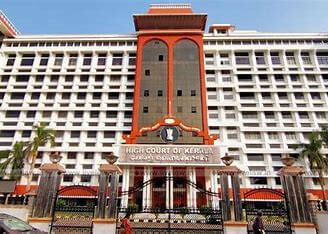By Niyathi Hegde

A study of case – Arun P. v. State of Kerala, Bail Application. No. 3186 of 2022
The rise in attacks against doctors and medical institutions in recent years has prompted Kerala to enact The Kerala Healthcare Service Persons and Healthcare Service Institutions (Prevention of Violence and Damage to Property) Act, 2012. The object of the Act is to prevent violence against healthcare service persons and to prevent damage and loss to property in healthcare service institutions.
In the present case the Petitioner is alleged to have wrongfully restrained a doctor and threatened her while she was on her way to the casualty of the hospital, thereby causing obstruction to her official duty and committing offences under sections 341, 353 and 506 of the Penal Code, 1860, and sections 3 and 4(1) of the Healthcare Act.
In his application for pre-arrest bail, the Petitioner claims that he had gone to the hospital due to pain in his body after a motor vehicle accident and after waiting for over 1 ½ hours for his X-ray to be taken, he approached the doctor to explain his condition. However, the doctor allegedly reacted in a hostile manner and threatened not to treat him. The Petitioner argues that he had not committed any offence as alleged.
The Petitioner’s counsel contends that as per the FIR, no injury or assault had taken place, and hence the allegation constitutes only a minor offence, the Petitioner should be released on pre-arrest bail. However, the Public Prosecutor argues that although the offences under the Penal Code are bailable, the provisions under the Healthcare Act are non-bailable and granting pre-arrest bail would prevent the custodial interrogation.
The court notes that the Healthcare Act has been enacted to curb violence against doctors and medical institutions and the definition of the word “violence” in Section 2(e) gives it the widest amplitude possible- “Activities causing any harm, injury or endangering the life or intimidation, obstruction or hindrance, to any healthcare service person in discharge of duty in any healthcare service institution or damage or loss to property in healthcare service institutions”. Section 3 of the Healthcare Act prohibits violence against healthcare service persons and is made non-bailable as per section 4(4) of the Act. The intention of the legislature is clear and any act of intimidation or obstruction or hindrance to a healthcare service person must be curbed.
The Court concludes that the salutary objective behind the Healthcare Act and the wide meaning ascribed to the word violence cannot be ignored while considering an application for pre-arrest bail. The legislative intent is manifest from the definition of the word violence, and the offence having been made non-bailable. Thus, even an obstruction or hindrance, if committed on a healthcare person, is a grave offence. The absence of an assault on the doctor does not entail a person accused of an offence under the Healthcare Act to be released on pre-arrest bail.
However, if the Petitioner surrenders himself before the Investigating Officer within seven days, the officer shall interrogate him. If the Petitioner is arrested after the interrogation, he shall be produced before the jurisdictional Magistrate immediately and if any bail application is preferred, it shall be considered by the Magistrate in accordance with law.
In conclusion, the Kerala Healthcare Service Persons and Healthcare Service Institutions (Prevention of Violence and Damage to Property) Act, 2012, plays a vital role in curbing violence against healthcare workers and medical institutions. The court’s decision to deny pre-arrest bail reinforces the gravity of any act of intimidation or obstruction to a healthcare service person. The Act serves as a deterrent to anyone who would contemplate such behaviour.


